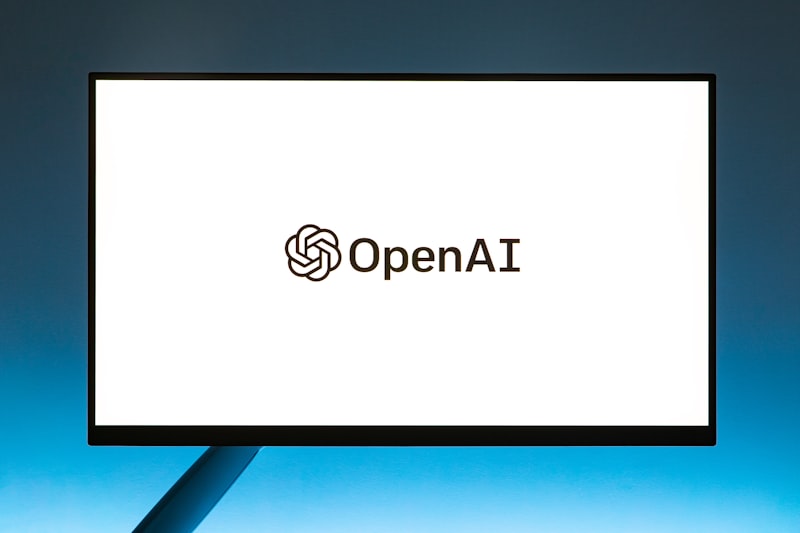Imagine having a virtual assistant that never sleeps, tirelessly crunching numbers and analyzing data to provide real-time insights. AI-powered analytics do just that, enabling businesses to make data-driven decisions swiftly and accurately. Whether it’s predicting market trends or optimizing supply chains, AI algorithms are adept at spotting patterns that humans might miss, giving companies a competitive edge.
Customer service has also seen a monumental shift with AI. Chatbots powered by AI can handle a myriad of customer inquiries round the clock, offering personalized responses and resolving issues promptly. This not only improves customer satisfaction but also frees up human resources for more complex tasks that require empathy and creativity.
In manufacturing, AI-driven robotics are transforming production lines, making them more efficient and adaptable. These robots can perform repetitive tasks with precision, reducing errors and minimizing downtime. Moreover, AI’s predictive maintenance capabilities help prevent costly breakdowns by anticipating equipment failures before they occur.

Financial institutions are leveraging AI for fraud detection and risk management. Machine learning algorithms analyze vast amounts of transaction data in real-time, flagging suspicious activities and mitigating risks proactively. This not only protects businesses and consumers but also maintains trust in the financial system.
Even in marketing and advertising, AI plays a pivotal role. By analyzing consumer behavior and preferences, AI algorithms can target personalized advertisements to specific demographics, maximizing ROI for businesses while enhancing user experience.
AI Revolutionizing Efficiency: How Machine Learning is Streamlining Business Operations
Imagine a scenario where every repetitive task in your business, from data entry to customer support queries, is handled swiftly and accurately without human intervention. That’s the power of machine learning at work. By analyzing vast amounts of data, ML algorithms can identify patterns and make decisions in real-time, freeing up human resources for more strategic roles.
Take customer service, for example. AI-powered chatbots can interact with customers 24/7, answering common questions instantly and routing complex inquiries to human agents. This not only enhances customer satisfaction by providing immediate responses but also reduces operational costs for businesses.
Moreover, in supply chain management, AI algorithms optimize inventory levels based on historical data and current demand forecasts. This proactive approach minimizes stockouts and excess inventory, thus improving overall efficiency and profitability.
AI is also transforming marketing strategies. By analyzing consumer preferences and behaviors, ML algorithms can personalize marketing campaigns with laser precision. This targeted approach maximizes ROI by ensuring that promotional efforts resonate with the right audience at the right time.
Furthermore, AI-driven predictive analytics are enabling businesses to forecast trends and potential issues with unprecedented accuracy. Whether it’s predicting equipment failure in manufacturing or forecasting sales trends in retail, AI algorithms crunch data faster and more accurately than traditional methods.
From Data to Decisions: AI’s Impact on Smarter Business Operations
Imagine a scenario where every piece of data generated within your business is not just stored, but actively analyzed to uncover hidden insights. AI makes this a reality by employing advanced algorithms to sift through vast amounts of data in real-time. This capability allows businesses to spot trends, predict customer behaviors, and optimize operations with unprecedented precision.
One of AI’s greatest impacts is its ability to automate repetitive tasks that once consumed valuable time and resources. By automating routine processes such as data entry, customer support queries, and inventory management, AI frees up employees to focus on more strategic initiatives. This not only boosts efficiency but also empowers teams to innovate and create more value for the business.
Moreover, AI-powered analytics provide decision-makers with actionable insights derived from complex datasets. Whether it’s identifying cost-saving opportunities or pinpointing areas for growth, AI enables businesses to make informed decisions swiftly. This capability is akin to having a trusted advisor who continuously monitors business metrics and offers strategic recommendations based on real-time data.

Another aspect where AI shines is in enhancing customer experiences. By analyzing customer interactions and preferences, AI can personalize recommendations and communications. This personalized approach not only increases customer satisfaction but also fosters long-term loyalty—a critical factor in today’s competitive market landscape.
In essence, AI isn’t just a tool; it’s a catalyst for transformation. It empowers businesses to move from reactive to proactive strategies, from guesswork to data-driven decisions. As AI continues to evolve, its impact on smarter business operations will only deepen, offering new possibilities and efficiencies that were once unimaginable. Embracing AI isn’t just about keeping up with trends—it’s about leading with innovation and staying ahead in the dynamic world of business.
Harnessing AI for Competitive Edge: Transforming Business Operations
Imagine having an intelligent assistant tirelessly analyzing mountains of data, uncovering hidden patterns, and predicting future trends—all in a fraction of the time it would take a human. That’s the promise AI brings to the table. By leveraging AI-driven insights, businesses can make informed decisions swiftly, staying several steps ahead of the competition.
One of the most compelling aspects of AI is its ability to automate mundane tasks, freeing up valuable human resources to focus on more strategic initiatives. From automating customer service interactions to optimizing supply chain logistics, AI streamlines operations with unprecedented precision and reliability.
Moreover, AI doesn’t just stop at operational efficiency; it’s also a catalyst for innovation. By analyzing consumer behavior and market trends, AI empowers businesses to tailor their offerings more precisely to customer needs. It’s like having a crystal ball that reveals exactly what customers want before they even know it themselves.
But perhaps the true magic of AI lies in its adaptability. Whether you’re a small startup or a global corporation, AI technologies can be scaled and customized to fit your specific needs. It levels the playing field, allowing even smaller players to compete with industry giants on a more equal footing.
Automation Redefined: AI’s Influence on Productivity in Business Operations
AI has redefined automation, making processes smarter and faster than ever before. By analyzing vast amounts of data with precision, AI identifies patterns and insights that human minds might miss. This ability empowers businesses to streamline operations, predict trends, and make informed decisions swiftly.
One of the most significant benefits of AI-driven automation is its ability to handle repetitive tasks. Mundane and time-consuming jobs that once tied down employees can now be delegated to AI systems. This frees up human resources to focus on creative and strategic endeavors that drive innovation and growth.
In customer service, AI-powered chatbots are revolutionizing how businesses interact with consumers. These bots provide instant responses to queries, resolve issues efficiently, and even personalize interactions based on customer data. This not only enhances customer satisfaction but also boosts operational efficiency.
Moreover, AI algorithms are optimizing supply chain management by predicting demand, reducing waste, and optimizing inventory levels. This proactive approach minimizes costs and ensures products reach consumers faster, thereby improving overall business agility.
In finance, AI algorithms analyze market trends in real-time, enabling quicker and more accurate financial decision-making. This capability is crucial in volatile markets where timely actions can mean the difference between success and failure.
However, the integration of AI into business operations isn’t without challenges. Concerns over data privacy, ethical AI use, and the displacement of jobs are valid considerations that require thoughtful solutions and regulations.
Frequently Asked Questions
What are some real-world examples of AI applications in business operations?
Explore real-world AI applications in business operations, including predictive analytics for sales forecasting, chatbots for customer service automation, and computer vision for quality inspection in manufacturing.
What are the potential challenges of adopting AI for business operations?
Learn about the potential challenges businesses face when adopting AI for operations, including data privacy concerns, integration complexities, initial investment costs, and the need for skilled personnel.
How does AI streamline decision-making processes in businesses?
Discover how AI optimizes decision-making in businesses by automating data analysis, predicting outcomes, and offering actionable insights based on complex patterns and trends.
How can businesses integrate AI technologies into their existing systems?
Discover how businesses can seamlessly integrate AI technologies into their current systems. Learn practical strategies and considerations for adopting AI, including data readiness, choosing appropriate AI tools, and fostering a culture of AI innovation within your organization.
What are the key benefits of AI in improving business operations?
Discover how AI enhances business operations by automating tasks, optimizing processes, enhancing decision-making through data insights, and enabling personalized customer experiences.


